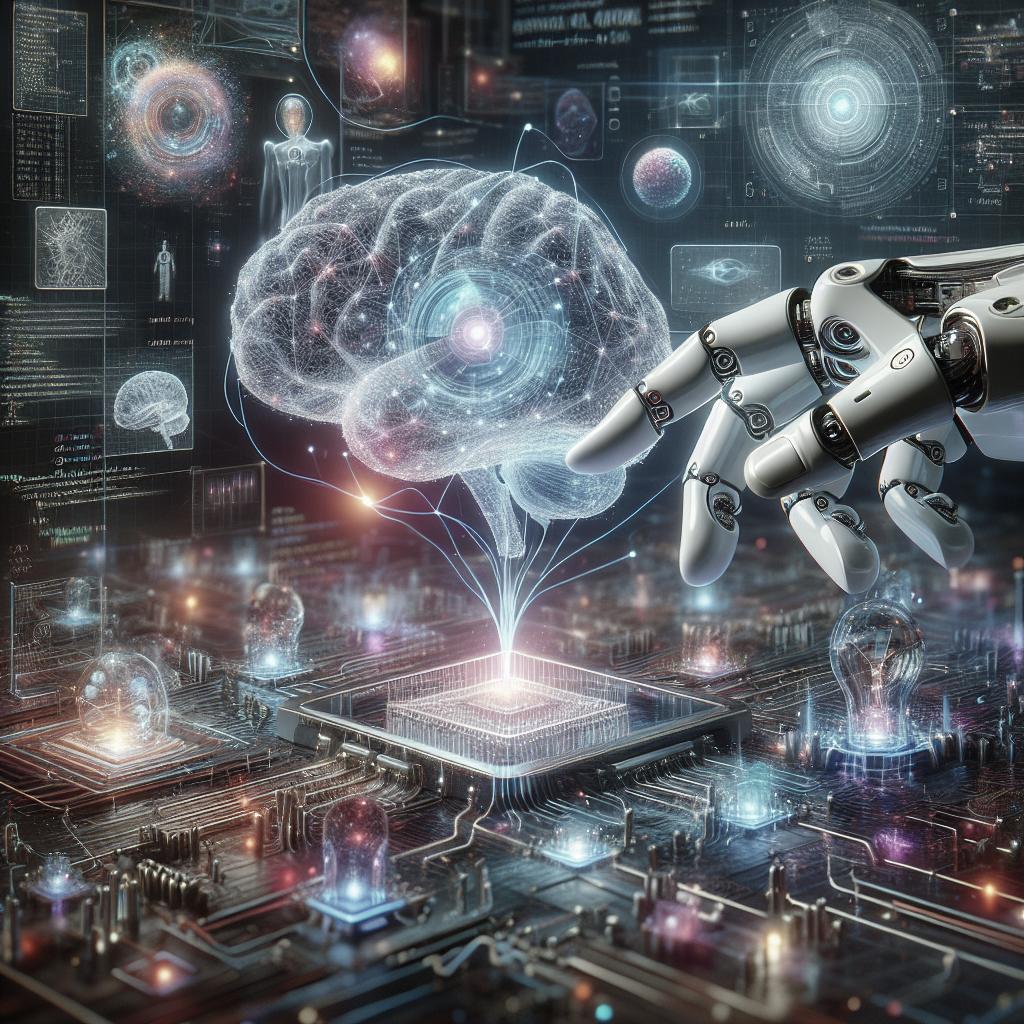“`html
Key Skills for a Data Scientist
Data science is a dynamic field that blends technology, mathematics, and domain knowledge to extract meaningful insights from data. As organizations continue to recognize the value of data, the demand for skilled data scientists is on the rise. In this article, we will explore the essential skills needed to excel in this field, covering programming, statistics, machine learning, and more. Whether you’re just starting your career or looking to expand your skill set, understanding these core competencies is crucial for success in the competitive and ever-evolving landscape of data science.
1. Programming
Programming is the backbone of data science. It is essential for implementing algorithms, processing data, and building models. Mastery in programming languages like Python or R offers the flexibility to manipulate data and apply various machine learning techniques. These languages have extensive libraries and frameworks that support data analysis and modeling, making them popular choices in the field.
Moreover, the ability to write efficient code is vital for handling large datasets and optimizing performance. A data scientist should also have a good understanding of software development concepts such as version control, modular code development, and testing.
Does data science require coding?
Yes, data science does require coding. While some platforms offer drag-and-drop interfaces, coding remains crucial for conducting sophisticated analysis and developing custom solutions. Data scientists frequently engage with data manipulation, statistical analysis, and the construction of models, tasks that necessitate coding proficiency.
Coding also empowers data scientists to automate repetitive tasks, thereby increasing efficiency and accuracy. By learning to code, aspiring data scientists can better understand and control the analytical processes, tailor solutions to specific problems, and stay agile in a rapidly changing technological environment.
Is SQL required for data science?
SQL, or Structured Query Language, is an indispensable tool for data scientists. As data is often stored in relational databases, understanding SQL enables data scientists to efficiently retrieve and manipulate this data. SQL’s ability to handle data querying and updating tasks makes it essential for initial data exploration and cleaning stages.
While SQL alone may not suffice for all data science tasks, its synergy with Python or R is powerful. By combining SQL with these programming languages, data scientists can streamline their workflows and perform comprehensive data analyses, from extraction to presentation.
2. Statistics and Mathematics
A strong foundation in statistics and mathematics is crucial for data science. Statistics provides data scientists with methodologies to collect, review, analyze, and draw conclusions from data. It helps in identifying patterns and inferring relationships between variables, which is fundamental for predictive modeling.
Mathematics goes hand-in-hand with statistics, offering tools like calculus and linear algebra, which are necessary for understanding and implementing machine learning algorithms. Proficiency in these areas allows data scientists to create and utilize complex models that drive informed decision-making.
3. Machine Learning
Machine learning is at the heart of data science, enabling the creation of predictive models that learn from past data. Data scientists should be adept at implementing various machine learning algorithms, from regression to deep learning, to cater to different analytical needs.
Understanding when and how to apply these algorithms is crucial. A data scientist must also be skilled in tuning model parameters and validating the results, ensuring that the models are not only accurate but also generalize well to new data. The ability to leverage machine learning for automated decision-making and pattern recognition is a key differentiator for data science professionals.
4. Data Manipulation and Analysis
Data manipulation involves cleaning, transforming, and organizing data for analysis. This skill is vital because data is often messy and unstructured in its raw form. Using tools and libraries such as Pandas in Python, data scientists can efficiently process and prepare data for deeper analysis.
Analysis of data aims to extract actionable insights. Data scientists utilize statistical tools and programming to interpret complex datasets, uncover trends, and guide strategic business decisions. Mastery in data manipulation and analysis is foundational to performing any advanced data science tasks.
5. Data Visualization
Data visualization is about presenting data through graphical representations, aiding the easy understanding of complex data sets. Effective data visualization helps in identifying trends, patterns, and outliers, and is a crucial communication tool within data science.
Tools such as Tableau, Matplotlib, and Seaborn provide the means to create compelling graphs, charts, and dashboards. A data scientist must not only be able to create these visualizations but also to interpret and communicate the findings clearly and persuasively to stakeholders without a technical background.
6. Analytical Thinking
Analytical thinking is a cornerstone skill for data scientists, driving the ability to deconstruct complex problems and devise data-driven solutions. With a logical approach, data scientists can systematically tackle challenges, evaluate diverse data sources, and derive meaningful conclusions.
In-depth knowledge of analytical methodologies enhances a data scientist’s effectiveness in deploying insights for strategic decision-making. The capacity to critically assess and synthesize information underpins the value they bring to a business’s growth and innovation pursuits.
What soft skill is needed by data science?
Critical soft skills include problem-solving, adaptability, and communication. Data scientists must interact effectively with teams across different functions, translating complex findings into actionable insights. Their ability to work collaboratively and communicate ideas coherently is as crucial as technical expertise.
Additionally, a growth mindset and the willingness to continuously learn and adapt to new technologies and methodologies are essential. These soft skills combine with technical abilities to create a well-rounded data science professional.
7. Communication Skills
Strong communication skills are imperative for any data scientist. After performing analyses and deriving insights, the next challenge is effectively communicating these findings to stakeholders who may not have a technical background. Clear communication ensures that data-driven insights are understood and acted upon by decision-makers.
Whether it is through written reports, visualizations, or verbal presentations, the ability to translate complex data concepts into accessible language is invaluable. Data scientists often serve as a bridge between data and decision-making, highlighting the importance of strong communication.
8. Problem-Solving
Problem-solving is at the core of a data scientist’s job. With an abundance of data, the ability to distill pertinent information and find innovative solutions to business challenges is paramount. Data scientists must navigate through noise, interpret data accurately, and decide the best approach to address specific problems.
They often face unpredictable challenges, requiring a proactive and flexible approach to finding effective solutions. This skill involves creativity and persistence, allowing data scientists to unlock value and enhance business operations through data-driven insights.
9. Domain Knowledge
Domain knowledge refers to understanding the context and nuances of the industry in which a data scientist operates. This understanding is crucial as it influences how data is interpreted and applied. Knowledge of industry-specific trends and challenges allows data scientists to tailor their analyses accordingly.
In-depth domain expertise enhances a data scientist’s ability to ask the right questions and leverage data more effectively. Whether it’s finance, healthcare, marketing, or any other field, domain knowledge ensures that insights are both relevant and impactful, aligning with organizational goals.
10. Collaboration and Teamwork
Data science is rarely a solitary pursuit; working with teams across disciplines is common. Data scientists must collaborate with engineers, analysts, and business stakeholders to build comprehensive solutions. This requires excellent interpersonal skills and an understanding of team dynamics.
Effective collaboration ensures that data projects align with business objectives and that insights are smoothly integrated into decision-making processes. By fostering teamwork, data scientists can achieve more robust outcomes and drive innovation within their organizations.
Future Prospects
| Skill | Description |
|---|---|
| Programming | Enabling data manipulation and algorithm implementation through languages like Python and R. |
| Statistics and Mathematics | Foundation for predicting modeling and interpreting data using statistical methods and mathematical tools. |
| Machine Learning | Creating predictive models that learn from data to automate decision-making processes. |
| Data Manipulation and Analysis | Cleaning and judging data to extract actionable insights for business strategies. |
| Data Visualization | Representing data through visual means to communicate findings clearly to stakeholders. |
| Analytical Thinking | Deconstructing problems logically to provide data-driven solutions. |
| Communication Skills | Translating complex data concepts to accessible language for effective stakeholder communication. |
| Problem-Solving | Distilling valuable insights from data to solve business challenges creatively. |
| Domain Knowledge | Understanding industry-specific nuances for relevant and impactful data analysis. |
| Collaboration and Teamwork | Working across multidisciplinary teams to align projects with business objectives. |
“`


